
Water Damage RESTORATION deerfield beach, fl
Other cities we are located in: Las Vegas
FLOOD WATER REMOVAL & RESTORATION SERVICES
JGW Group Water Damage Restoration offers comprehensive flood water removal and restoration services to swiftly restore your property to its original state. Our skilled technicians utilize cutting-edge equipment and techniques to efficiently eliminate excess water or moisture from your residential or commercial space. Additionally, we recognize the importance of repairing any damaged materials to prevent future issues.
At JGW Group Las Vegas, we pride ourselves on exceeding your expectations with exceptional service. Our team evaluates the damage and devises an effective plan for removing standing water, repairing damaged materials, and restoring your property. We also provide guidance on safeguarding your property against future flooding incidents. When you require flood water removal and restoration services, turn to JGW Group for assistance.
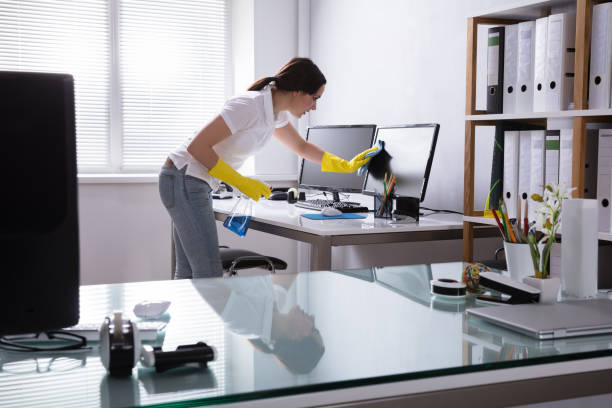
CONTACT US
WATER DAMAGE SERVICES
Standing water can cause significant inconvenience and permanent damage if it is not addressed promptly. Unfortunately, many individuals fail to consider the repercussions of standing water until it is too late. The longer you delay taking action, the more severe the damage can become. Therefore, JGW Group Water Damage Restoration is available to assist you.
JGW Group Water Damage Restoration has extensive experience in addressing all types of water damage, regardless of the magnitude. Our team of skilled technicians can identify any structural or foundational concerns that may result from standing water, whether you have a leaky pipe or flooding in your residence. We understand that each situation is unique, which is why we provide customized solutions tailored to your specific requirements.
Emergency
Water Damage Restoration
Fire Damage
Repair
Flood
Damage
Mold
Removal
Why Choose JGW Group Water Damage Restoration
- Emergency water extraction and removal
- Structural drying and dehumidification
- Cleaning and sanitizing of affected areas
- Repair and restoration of affected areas
- Mold assessment and remediation
- Drying and storing of documents and other valuables
- Insurance claim assistance
- Emergency board-up and roof tarping services
- Water damage assessment and inspection
- Insurance claim assistance
- Emergency board-up and roof tarping services
- Water damage assessment and inspection
See What Our Customers Think
Trustindex verifies that the original source of the review is Google. "Overall, I was so glad I hired JGW Group Water Damage Restoration to do the job! They very quickly took care of my home and made sure I was completely satisfied with the outcome. "Trustindex verifies that the original source of the review is Google. JGW Group exceeded all of my expectations when it came to restoring my home after a devastating flood. Their expertise in flood damage restoration was immediately apparent and their compassionate, understanding demeanor made the entire process stress-free. The team was accommodating to my needs and worked efficiently to bring my home back to its former glory. I am truly grateful for their help and would highly recommend JGW Group to anyone in need of their services. They truly went above and beyond to provide me with the best possible outcome. Thank you JGW Group!Trustindex verifies that the original source of the review is Google. JGW Group was a lifesaver when it came to our flooded basement! Their quick action and expert solutions left us thoroughly impressed and overjoyed with the results. They worked efficiently to get the job done and exceeded our expectations in every way. The quality of their work was truly remarkable and we are grateful to have found such a professional and reliable team. We highly recommend JGW Group to anyone in need of water damage restoration services. Thank you JGW Group for making what could have been a disastrous situation, into a stress-free and successful outcome.Trustindex verifies that the original source of the review is Google. The JGW Group was simply outstanding in resolving our mold issue at home! Their prompt response and effective solution left us thoroughly impressed and grateful. They not only took care of the problem with the utmost efficiency but also ensured that it wouldn't recur in the future. We couldn't be happier with the outcome and highly recommend JGW Group for any mold-related concerns. They truly went above and beyond to help us out. Thank you JGW Group!Trustindex verifies that the original source of the review is Google. "I was highly impressed with JGW Group Water Damage Restoration! The end result was absolutely stunning and I couldn't be happier with how they handled the entire restoration process. "Trustindex verifies that the original source of the review is Google. "Couldn't be happier with JGW Group Water Damage Restoration! They were great communicators, always keeping me in the loop and making sure the job was done right. Highly recommend it! "Trustindex verifies that the original source of the review is Google. We recently experienced a major plumbing issue in our kitchen with a burst pipe, but JGW Group was there to save the day! From the moment they arrived, their professionalism and expertise were evident. They quickly assessed the damage and sprang into action, working tirelessly to repair the water damage and restore our kitchen to its former glory. Their attention to detail was impeccable, and they took great care to minimize the disruption to our daily routine. They kept us informed throughout the entire process, and their friendly and empathetic manner put us at ease during what could have been a very stressful time. The end result was truly outstanding; our kitchen was restored to its original condition, and you wouldn't even know that there had ever been a problem. We cannot speak highly enough of JGW Group and the outstanding job they did. They are true professionals, and their work was of the highest quality. We would highly recommend them to anyone in need of water damage repair. They went above and beyond to make sure we were completely satisfied, and we are truly grateful for their excellent service.Trustindex verifies that the original source of the review is Google. We had a major disaster in our basement with a flood, but JGW Group came to the rescue! From the moment they arrived on the scene, their expertise and professionalism were evident. They assessed the situation and quickly sprang into action, working tirelessly to clean up the flood damage and restore our basement to its former glory. Their attention to detail was exceptional, leaving no stone unturned as they worked to restore our property. They made sure to keep us updated every step of the way, and their friendly and empathetic manner put us at ease during this stressful time. The end result was simply amazing; our basement was returned to its original condition, and you wouldn't even know that a flood had ever occurred. We cannot speak highly enough of JGW Group and the outstanding job they did. They are true professionals in every sense of the word, and we would highly recommend them to anyone in need of flood damage restoration. They went above and beyond to make sure we were satisfied, and we are grateful for their excellent service.Trustindex verifies that the original source of the review is Google. We recently had the pleasure of working with JGW Group Water Damage Restoration Las Vegas and I must say, it was a truly fantastic experience. From the moment we made the call, the team at JGW Group was incredibly helpful and professional. They quickly understood our situation and went above and beyond to assist us. The team arrived promptly and immediately got to work on our water damage. Their expertise and attention to detail were evident from the start, and they made sure to explain every step of the process to us. They worked tirelessly to ensure that our home was back to its original condition, and the results were truly stunning. The work they did was of the highest quality, and we were so impressed by the care and dedication they showed throughout the entire process. We would like to extend a heartfelt thank you to JGW Group Water Damage Restoration Las Vegas for their exceptional service. They made a difficult situation so much easier to handle, and we are so grateful for their help. We would not hesitate to recommend JGW Group to anyone in need of their services. They truly went above and beyond to make sure that we were completely satisfied, and we couldn't be happier with the end result. Thank you, JGW Group, for a job well done!Trustindex verifies that the original source of the review is Google. I had a mold problem in my home and I was so worried about it. JGW Group was able to provide me with the best mold remediation services. They were so knowledgeable and helpful. I'm so glad I chose them.
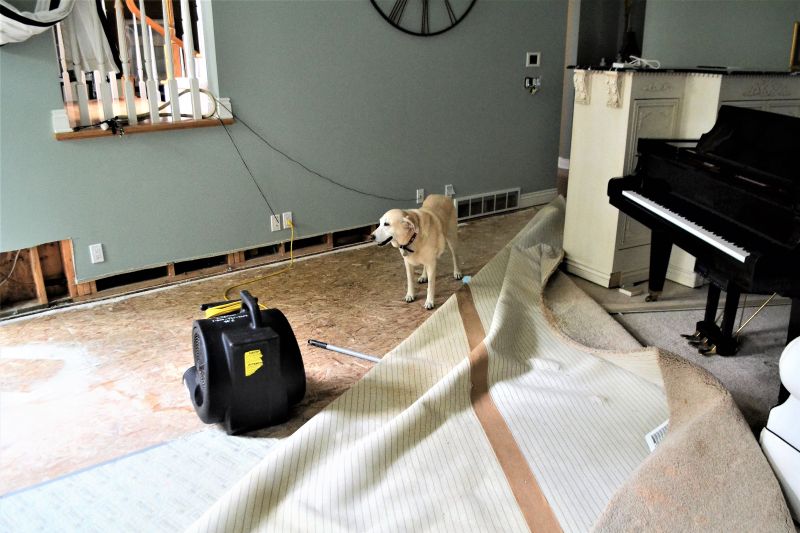
Emergency water extraction and removal
Efficient emergency water extraction and removal requires the use of wet/dry vacuum extractors or submersible pumps to eliminate significant amounts of standing water. If necessary, dehumidifiers can be employed to regulate moisture levels after all standing water has been eliminated. Specialized equipment, such as infrared cameras, may be necessary in some cases to identify trapped moisture behind walls or under floors.
Once all standing water has been removed from an area, proper ventilation is crucial for efficient drying and dehumidification processes over time. Air movers may need to be strategically placed around walls, carpets, and furnishings to promote efficient circulation and evaporation of moisture content within a room over several days or weeks, depending on the extent of damage caused by flooding or leakage. It is advisable to use an industrial-grade dehumidifier in conjunction with air movers during this process, as it helps to extract remaining humidity from carpets, walls, and furniture faster than natural evaporation. This approach minimizes the potential for mold growth due to excessive humidity levels during restoration efforts following water extraction by professionals.
Structural Drying and Dehumidification
The process of structural drying and dehumidification starts with assessing the damage caused by water exposure. Experienced water restoration technicians use thermal imaging cameras and measure humidity levels in the air to locate any trapped moisture inside the home’s structure. Once identified, they use specialized equipment, such as fans, blowers, high-velocity air movers, desiccant dehumidifiers, refrigerant dehumidifiers, air scrubbers/air cleaners, HEPA filters, ozone generators, and other devices designed for water removal, to eliminate any remaining moisture.
To begin the structural drying process, an airflow system is established by placing powerful fans or blowers near windows or doors in each room of the home to create continuous circulation of air within the area. Portable desiccant dehumidifiers are also used to absorb excess humidity from the air without producing condensation or additional heat.
The next step involves setting up heating systems throughout the home to increase ambient temperatures within each room, accelerate the evaporation rate of any remaining moisture, and cause trapped vapor molecules in furniture and walls to expand, which further aids in evaporating standing water droplets. Professional technicians use propane or electric-powered heaters and strategically position infrared lamps around areas with moisture pockets, such as closets or cabinets.
Throughout the process, constant monitoring and maintenance are essential to ensure all signs of water damage are eliminated completely from the home’s interior environment. Professional technicians use specialized tools, such as hygrometers to measure humidity and thermo-hygrometers to measure temperature, to accurately assess when conditions are suitable to declare a job finished successfully, without leaving any potential hazards, such as mold growth or other unseen damage-related problems that may occur if an area was not dried correctly the first time around.
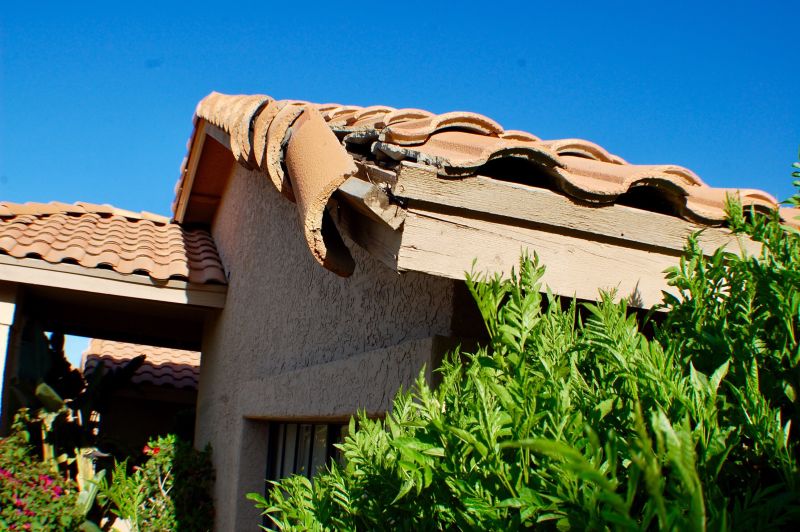
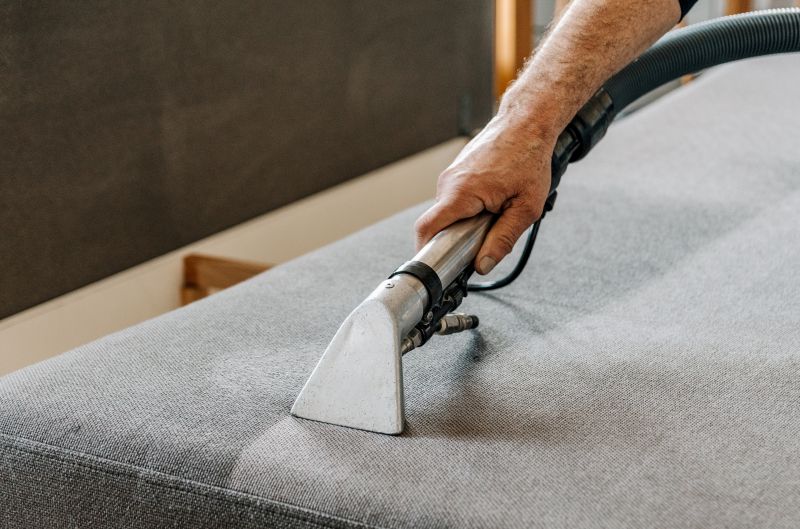
Cleaning and Sanitizing of Affected Areas
The first step in cleaning and sanitizing areas affected by water damage restoration is to remove all wet materials, including furniture, carpets, rugs, drapes, and other items exposed to water. Porous materials exposed to water should be discarded as they cannot be adequately cleaned or dried. After removing these items, an appropriate dehumidification system should be set up to reduce moisture levels in the area and facilitate efficient drying.
The second step is to dry out the space as much as possible using fans and dehumidifiers until all surfaces are completely dry. It is also essential to check for signs of mold on walls or ceilings to prevent further growth or spread of mold spores. Disinfectants should be applied to hard surfaces, such as countertops or floors, to kill any remaining bacteria or viruses that may be present due to floodwater contamination.
The final step is to treat the area with specialized products designed for use after a flood event, which help eliminate odors caused by microbial growth and inhibit future microbial growth. These products often include detergents, antimicrobials, antifungal agents, enzyme cleaners, odor-eliminating solutions, mildewcides/fungicides, and mildew inhibitors/resistant solutions. It is crucial to follow the manufacturer’s instructions carefully during application to prevent additional problems such as corrosion or staining on building materials due to overspray or inadequate rinsing.
In addition to specialized products, certain equipment can expedite the process of drying out an area, such as axial fan systems for ventilation purposes, dehumidifiers to remove moisture from indoor air, negative air machines to create negative pressure within a structure, ozone generators to produce ozone gas to remove odors, thermal foggers to release special fogging solutions for rapid odor elimination, air movers to force air into wet spaces, carpet scrubbers to clean carpets more efficiently, submersible pumps to quickly remove standing water from flooded areas, moisture meters to measure moisture levels within building structures, infrared cameras to detect hidden moisture behind walls or ceilings, infrared drying systems that use heat lamps set at specific temperatures, and vacuum extractors for faster removal of standing liquids during minor flooding scenarios.
Flood Damage Restoration Services
The first step in flood damage restoration services is assessing the degree of flooding. This will involve measuring and recording the amount of water present in the affected area, along with identifying any potential sources of contamination, such as chemicals or raw sewage. A professional flood damage restoration specialist will then evaluate the extent of the damage, determine what equipment will be needed for repair, and develop a plan for the restoration process. This could involve using temperature gauges to measure humidity levels, analyzing air samples to detect levels of hazardous materials, or inspecting walls and ceilings for visible signs of mold growth.
Once these assessments have been made, a plan for flood damage restoration services must be developed. Depending on the level of flooding, this may include replacing damaged flooring and drywall, removing damaged furniture and appliances from wet areas, repairing or replacing electrical systems that have been compromised by standing water, and disinfecting all affected surfaces to prevent microbial growth. To properly restore an area after a flood requires specialized equipment such as pumps to extract standing water; scrubbers and vacuums to remove debris; fans to dry out affected areas; dehumidifiers to remove excess moisture; infrared cameras to detect hidden water damage; moisture meters to measure how much moisture remains in structural components; air quality tests to gauge airborne levels of mold spores; foggers or ozone generators for deep cleaning and disinfection; thermal imaging cameras to locate areas where heat is trapped due to high humidity or poor circulation; pressure washers for hard-to-reach areas that are difficult to clean manually; HEPA filters capable of capturing microscopic particles like pollen dust mites or fungal spores; ionizers designed specifically for indoor air purification; containment tents used when working with hazardous materials such as asbestos or lead paint chips; personal protective equipment (PPE), including boots, goggles, face masks/respirators for safe working conditions during cleanup in contaminated environments.
The final step in flood damage restoration services from water damage restoration is testing the environment once clean up has been completed. Professional technicians use a variety of measurement tools including hydrostatic pressure testers which measure the depth of water penetration into walls and floors as well as relative humidity sensors which indicate if excessive moisture has penetrated into non-porous materials such as concrete slabs or plasterboard walls. In addition technicians may also employ digital hygrometers which measure both temperature and relative humidity inside buildings following flooding events in order assess whether conditions are suitable enough for reoccupation.
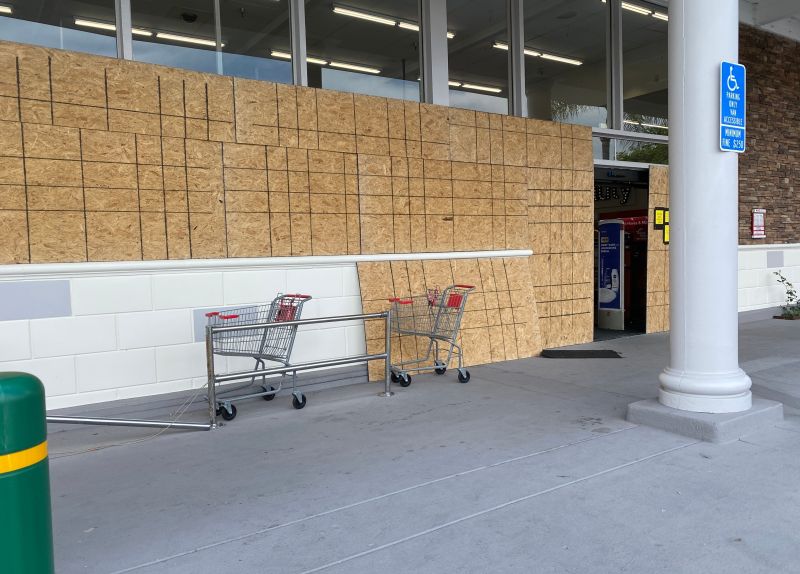

Emergency Board Up and Roof Tarping
The process for emergency board-up and roof tarping services begins with assessing the damaged area. A professional water restoration team evaluates which areas require board-up or tarping and what equipment is necessary to complete the job. Depending on the extent of the damage, all windows and doors may need to be boarded up. If only certain areas have significant damage, only those areas will require board-up or tarping.
Once it’s determined what needs to be done, materials such as plywood can secure windows and doors to limit access into a building while protecting against further water intrusion. Plywood panels cover window frames and doorways completely, providing greater security than cloth tarps alone. Heavy-duty screws, rather than nails, should be used to ensure boards stay securely fastened even after repeated exposure to wind and rain.
For roof tarping, durable material is needed that can resist strong winds and heavy downpours without tearing. Tarps come in different sizes, so selecting one with adequate coverage for the roof is crucial. Professional installers typically use two layers with overlapping edges for maximum protection against water infiltration. If installing tarps personally, reinforced grommets should be used to secure them properly onto rooftops with ropes or bungee cords, preventing wind from tearing them away from their attachments during severe storms.
In addition to plywood panels and tarps, other equipment may be necessary depending on the damage caused by water intrusion, such as ladders, hammers, nails/screws, chalk lines (for measuring), saws (to cut plywood panels), and rope/bungee cords (for securing tarps). To ensure proper installation of emergency board-ups and roof tarping, it’s best practice to consult experts who understand how different types of materials work together to keep protection intact even when exposed to extreme weather conditions like hurricanes or thunderstorms. They can also provide advice on how long each type of material should last before needing replacement once weather patterns change again.
Plumbing Leaks
Professional technicians use specialized equipment designed specifically for plumbing leaks when dealing with water damage restoration. These tools range from hand-held inspection cameras to powerful sewer jetters that can unclog drains and pipes. High-pressure pumps are also used to flush out built-up sediment and debris that could complicate repairs if left unchecked. Depending on the severity of the situation, specialized tools like pipe cutters and pipe freezing systems may also be necessary for more complex repairs.
While repairing existing pipes and fixtures is crucial, preventive measures are equally important to reduce future issues from occurring in the same areas. Technicians must apply comprehensive waterproofing methods such as caulking around exposed piping and sealing any cracks or joints in existing pipes with special putty compounds. Similarly, if drains are found clogged during inspections, special drain cleaning products and state-of-the-art drain cameras should be used. This allows technicians to inspect drainage systems without having to dig up floors or walls, which could cause more issues.
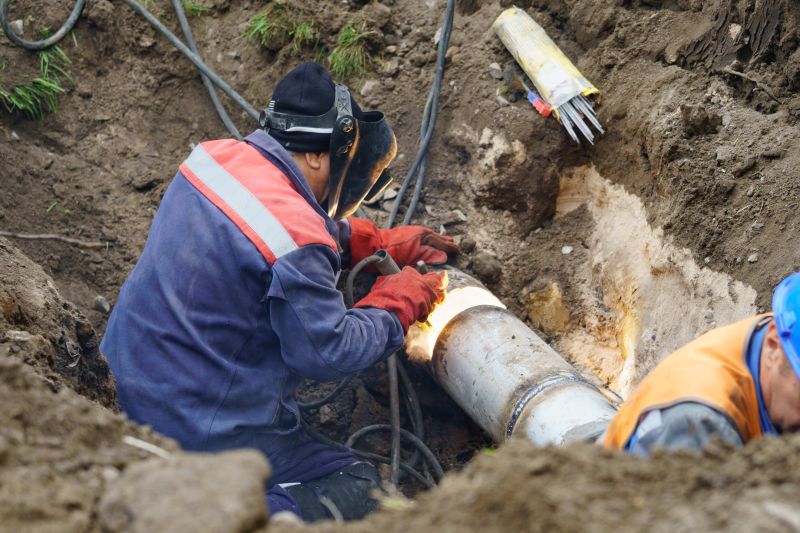
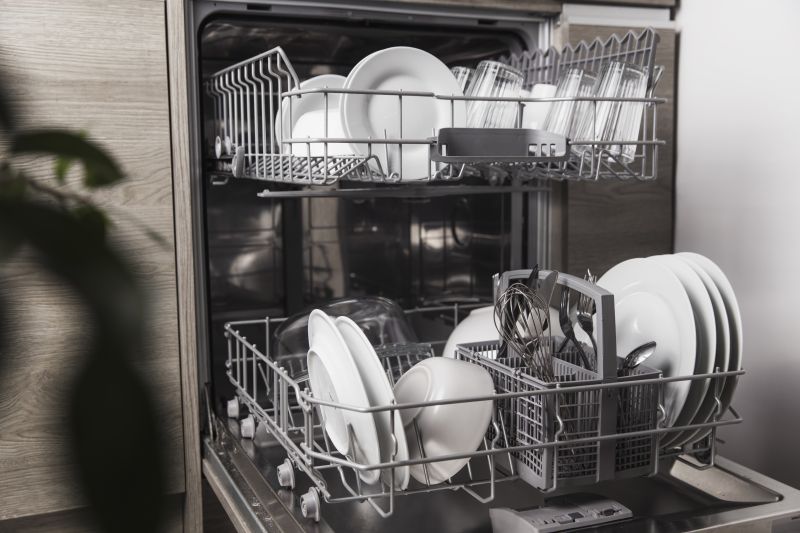
Water Damage Assessment
After completing their assessment and inspection of affected areas from water damage restoration, professionals will develop a plan for repair and restoration which usually involves drying out wet surfaces using dehumidifiers, cleaning up any contaminated materials, disinfecting affected areas with antimicrobial agents, and replacing damaged items such as carpets or furniture if needed. The extent of work required will depend on how deep the moisture penetrated into building materials; deeper-penetrating moisture may require more complex repairs such as wall reconstruction if necessary.
Finally, after all repairs have been completed it’s time for final inspections. Using their specialized equipment once again they take readings on humidity levels throughout each room; this helps ensure that all moisture has been removed from all surfaces before repairs begin so no lingering issues occur later down the line. After these inspections are done a final report is compiled detailing all work done during the process so you can rest easy knowing your home or business has been returned to its pre-damage condition safely and efficiently!
Appliance Leaks
The first step in handling any appliance leak is to locate the source of the leak and assess the amount of water present in the affected area. This will involve using specialized instruments such as moisture meters, thermal imaging cameras, or infrared cameras to determine how much moisture has been absorbed into walls, floors, and furniture. Once the extent of the damage is determined then specialized equipment can be brought in to extract any standing water and start with the drying process.
Professional grade portable extraction units are typically used for small-scale jobs such as extracting water from beneath carpets or from furniture upholstery. These units will typically include an adjustable vacuum hose attachment which can draw out excess moisture quickly and efficiently with minimal disruption. For larger areas a truck mounted extraction unit may be needed which is more powerful than portable models but requires more time for setup and preparation.
Once all excess water has been removed from the affected area then professional grade dehumidifiers should be used to dry out any remaining moisture in walls or floors that may not have been visible during the initial assessment stage. Dehumidifiers work by drawing out moisture vapors which can later condense on colder surfaces creating permanent damage if not addressed correctly. Industrial fans placed strategically around the room can also help increase air circulation thus accelerating the rate at which moisture is removed from walls and other surfaces.
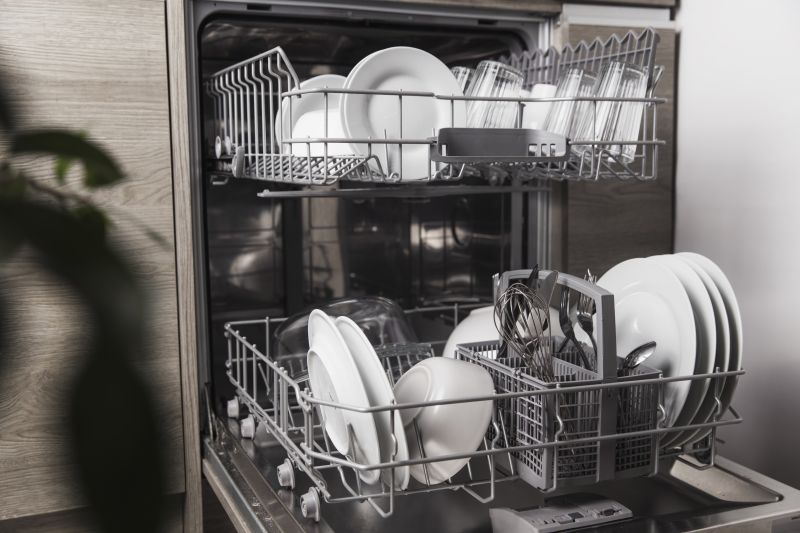
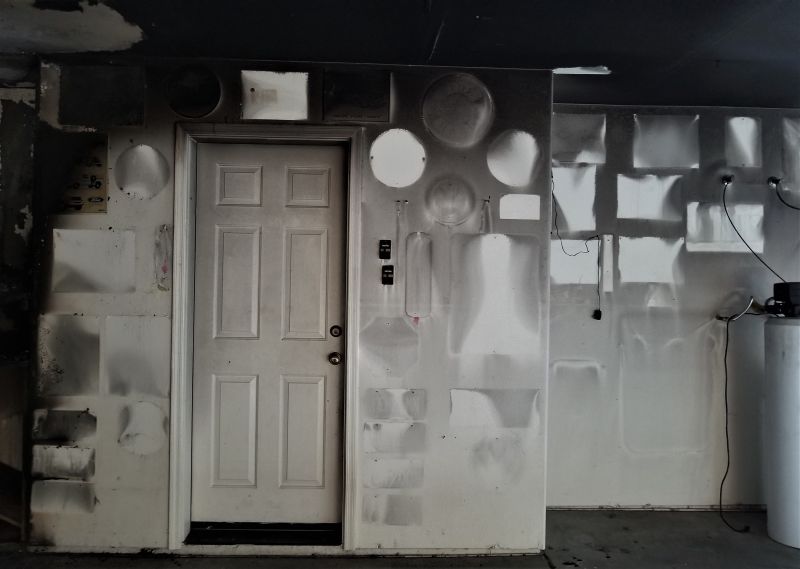
Smoke Damage Removal [location]
The first step in the smoke removal process is deodorization and sanitization of all surfaces that were compromised due to fire and smoke exposure during a water event. This includes walls, ceilings, air ducts, carpets and furniture among others. Specialized cleaning agents are used by technicians which neutralize odors trapped within porous materials like fabrics or upholstery while also sanitizing them against harmful bacteria growth caused by moisture accumulation over time. Finally high-powered HEPA type filters are set up throughout the premises which capture any remaining airborne particles suspended in air including dust mites, mold spores or other allergens that can harm inhabitants’ health if not treated properly after a disaster event like this one occurred at your home or business premises before going through this whole ordeal with all its subsequent repercussions regarding safety as well as valuable possessions being put at risk otherwise when proper cautionary measures weren’t followed accordingly first!
In some cases charred materials may need to be discarded since they cannot be salvaged safely anymore due too much exposure already having happened because everything happens for a reason I guess… Additionally nowadays more advanced technologies like thermal fogging machines can help better remove any lingering smells associated with fires from fabric surfaces like drapes (which have become increasingly popular lately) as well as carpeting – something technicians should certainly keep in mind when tackling tougher renovation scenarios related directly towards getting rid off such hazards whilst restoring your home back into its original state one project completion later down line too!
About Deerfield Beach, Florida
Deerfield Beach is a city in Broward County, Florida, United States, just south of the Palm Beach County line. The city is named for the numerous deer that once roamed the area. As of the 2020 census, the population was 88,859. It is a principal city of the Miami metropolitan area, which is home to 6,166,488 inhabitants as of 2020.
Neighborhoods in Deerfield Beach, Florida
West Deerfield Beach, Lakeview, The Cove, Arlington Park, Century Village, Tedder, Barwal, Carver Heights, Deerfield Beach, Deerfield Beach, Walmart Neighborhood Market
Things To Do in Deerfield Beach, Florida
Bus Stops in Deerfield Beach, Florida to JGW Group Water Damage Restoration
Bus Stop in US 1 & NE 54 St - (Toyota of Deerfield Beach) Deerfield Beach, Florida to JGW Group Water Damage Restoration
Bus Stop in Hillsboro Blvd & Powerline Rd Deerfield Beach, Florida to JGW Group Water Damage Restoration
Bus Stop in US 1 & SE 10 St Deerfield Beach, Florida to JGW Group Water Damage Restoration
Bus Stop in US 1 & Hillsboro Blvd Deerfield Beach, Florida to JGW Group Water Damage Restoration
Bus Stop in Deerfield Beach Deerfield Beach, Florida to JGW Group Water Damage Restoration
Bus Stop in Sample Rd & Powerline Rd (E) Deerfield Beach, Florida to JGW Group Water Damage Restoration
Bus Stop in Dixie Hwy & NE 49 St Deerfield Beach, Florida to JGW Group Water Damage Restoration
Bus Stop in Hillsboro Blvd & US 1 Deerfield Beach, Florida to JGW Group Water Damage Restoration
Bus Stop in US 1 & SE 7 St Deerfield Beach, Florida to JGW Group Water Damage Restoration
Bus Stop in US 1 & SE 13 Ct Deerfield Beach, Florida to JGW Group Water Damage Restoration
Bus Stop in Hillsboro Blvd & Powerline Rd (W) Deerfield Beach, Florida to JGW Group Water Damage Restoration
Bus Stop in Hillsboro Blvd & NW 3 Av - M L King Jr Blvd Deerfield Beach, Florida to JGW Group Water Damage Restoration
Map of Deerfield Beach, Florida
Driving Directions in Deerfield Beach, Florida to JGW Group Water Damage Restoration
Driving Directions from AAA Water Restoration to 700 Rich Dr #206, Deerfield Beach, FL 33441, USA
Driving Directions from United Water Restoration Group of Pompano Beach to 700 Rich Dr #206, Deerfield Beach, FL 33441, USA
Driving Directions from Restoration Xperts to 700 Rich Dr #206, Deerfield Beach, FL 33441, USA
Driving Directions from PuroClean of Deerfield Beach to 700 Rich Dr #206, Deerfield Beach, FL 33441, USA
Driving Directions from Emergency Flood Services to 700 Rich Dr #206, Deerfield Beach, FL 33441, USA
Driving Directions from A.S.A.P. Restoration Corp. to 700 Rich Dr #206, Deerfield Beach, FL 33441, USA
Driving Directions from BELFOR Property Restoration to 700 Rich Dr #206, Deerfield Beach, FL 33441, USA
Driving Directions from Express Mold Services to 700 Rich Dr #206, Deerfield Beach, FL 33441, USA
Driving Directions from ITD Restoration Deerfield Beach to 700 Rich Dr #206, Deerfield Beach, FL 33441, USA
Driving Directions from Field Mold Solutions to 700 Rich Dr #206, Deerfield Beach, FL 33441, USA
Driving Directions from JGW Group Water Damage Restoration to 700 Rich Dr #206, Deerfield Beach, FL 33441, USA
Driving Directions from ALL STARS DRY RESTORATION to 700 Rich Dr #206, Deerfield Beach, FL 33441, USA
Reviews for JGW Group Water Damage Restoration Deerfield Beach, Florida
Noah Hunt
When our home's bathroom experienced water damage due to a bathtub overflow, JGW Group Water Damage Restoration came to the rescue. Their expertise and commitment to quality work made the repair process smooth and stress-free. Definitely recommend
Andrew Black
I recently had a water damage issue in my home's basement due to a flooded window well. JGW Group Water Damage Restoration of Deerfield Beach quickly assessed the situation and effectively handled the repair. My basement is now dry and looks as good as new!
Benjamin Lee
"The staff at this company were incredibly meticulous when it came to mold testing. They patiently addressed all of my questions and concerns, making me feel comfortable throughout the process. The quality of their service was exceptional, and I highly recommend them to anyone in need of this type of job. "
Jordan Jo
Our Deerfield Beach condominium suffered water damage in the laundry room due to a faulty washing machine. JGW Group Water Damage Restoration was quick to respond and expertly addressed the issue. We highly recommend their services!
Leticia Rebouças Da Gama
I can't thank JGW Group enough for their amazing water damage restoration service. They were fast, thorough, and very professional. The team went above and beyond to make sure my home was back to its original condition, and I couldn't be happier with the result.



